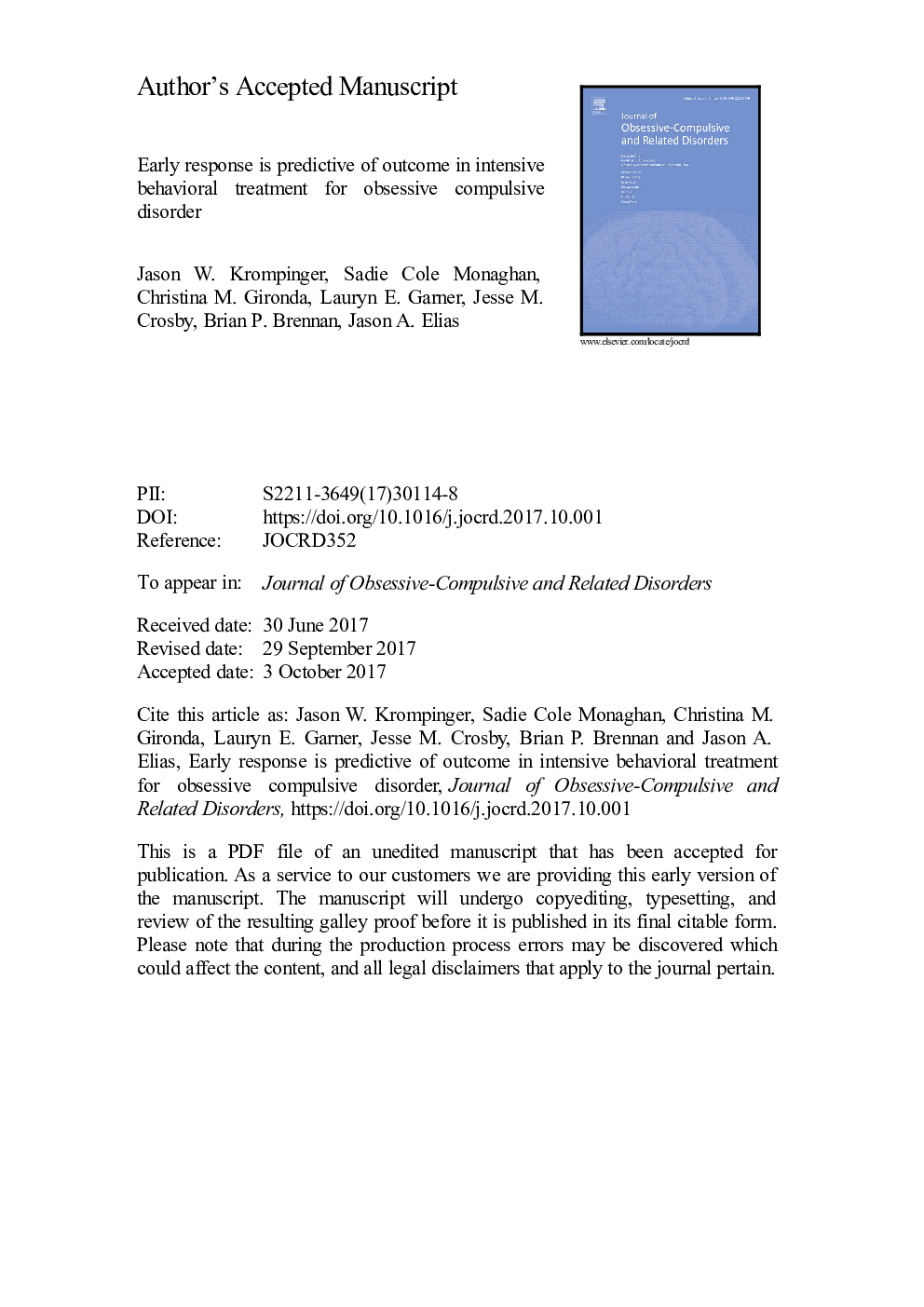| کد مقاله | کد نشریه | سال انتشار | مقاله انگلیسی | نسخه تمام متن |
|---|---|---|---|---|
| 7269096 | 1473192 | 2017 | 33 صفحه PDF | دانلود رایگان |
عنوان انگلیسی مقاله ISI
Early response is predictive of outcome in intensive behavioral treatment for obsessive compulsive disorder
ترجمه فارسی عنوان
پاسخ اولیه پیش بینی نتایج در درمان شدید رفتاری برای اختلال وسواس فکری است
دانلود مقاله + سفارش ترجمه
دانلود مقاله ISI انگلیسی
رایگان برای ایرانیان
موضوعات مرتبط
علوم پزشکی و سلامت
پزشکی و دندانپزشکی
روانپزشکی و بهداشت روانی
چکیده انگلیسی
Recent evidence indicates that CBT delivered in the context of intensive residential treatment (IRT) is an effective approach for severe OCD cases. However, no study has evaluated the extent to which process variables, such as early improvements, may be related to outcome. This paper describes a study that evaluates a sample of 98 patients with severe OCD who underwent IRT. Patients completed the Y-BOCS, a self-report measure, both at admission and discharge. Reliable clinical change in the first two weeks of residential treatment in relation to the improvement shown for the remainder of the patient's stay denoted an 'early improver.' We found 36 early improvers, and these patients experienced greater overall symptom reduction compared to patients who did not experience early improvement. With an area under the curve of .817, ROC analysis revealed that early response score was a reasonable metric in predicting significant reduction in OC symptoms during IRT. Coordinate of the curve analysis revealed that an early response cut-off point of 4.5 was sensitive and specific to treatment responders at 75% accuracy, meaning that a two-week post-admission decrease of 4.5 on the Y-BOCS was particularly predictive of response status at discharge. These findings and the future implications are discussed.
ناشر
Database: Elsevier - ScienceDirect (ساینس دایرکت)
Journal: Journal of Obsessive-Compulsive and Related Disorders - Volume 15, October 2017, Pages 57-63
Journal: Journal of Obsessive-Compulsive and Related Disorders - Volume 15, October 2017, Pages 57-63
نویسندگان
Jason W. Krompinger, Sadie Cole Monaghan, Christina M. Gironda, Lauryn E. Garner, Jesse M. Crosby, Brian P. Brennan, Jason A. Elias,
